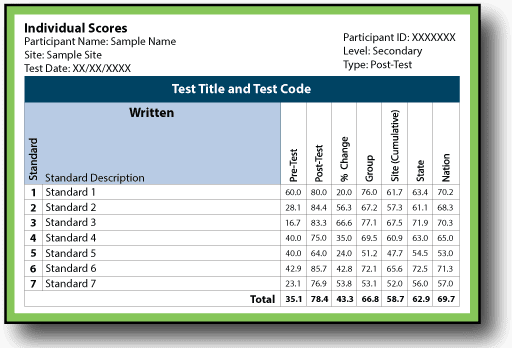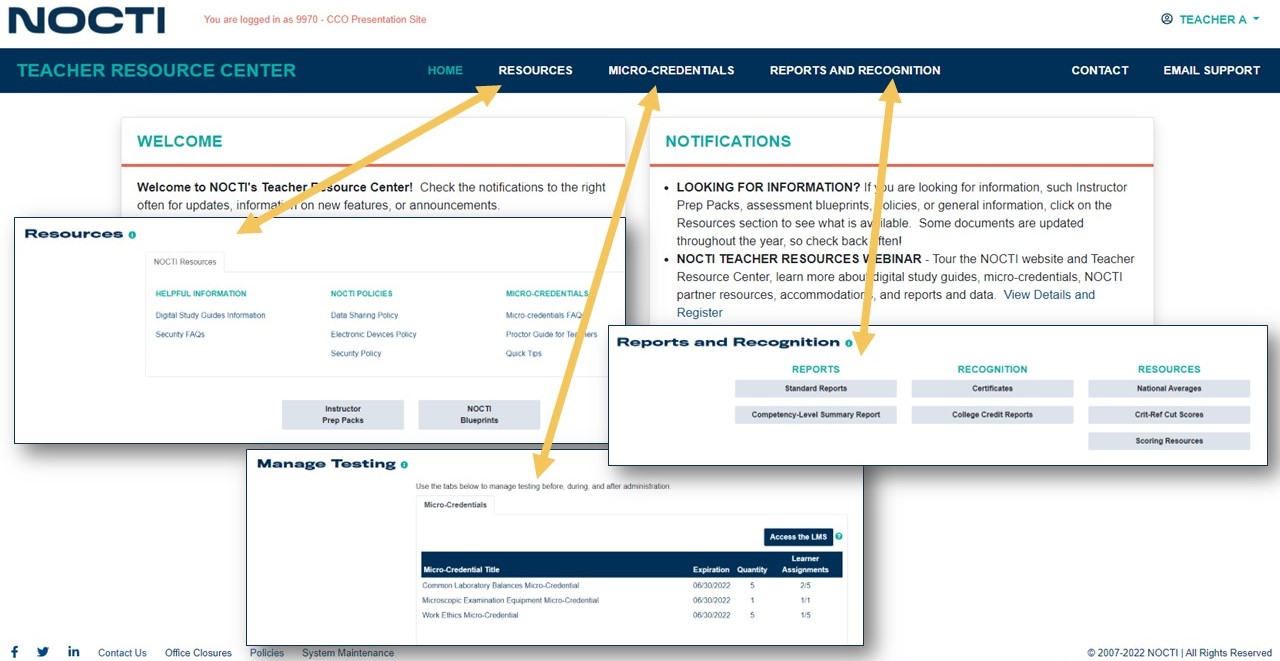Career & Technical Education (CTE) programs and their teachers are critical to equipping students with the skills and knowledge needed for career success. The growing popularity of CTE has coincided with a national shortage of qualified teachers and educators. In 2020, there were 198,100 CTE teachers in the U.S. Over the coming decade, the Bureau of Labor Statistics predicts 17,500 openings for CTE teachers each year.
Many individuals are entering the CTE teaching field after successful careers in other industries and it is essential for new teachers to have access to resources that support their success. In a previous post, we discussed resources for CTE teachers, including deciphering data and engaging parents. Now we will explore some additional resources to help CTE teachers meet educational goals and equip students for the next step in life.
Engaging Local Experts
Engaging local experts in the classroom can be a valuable way to ensure program material is relevant and can add variety to instruction. Local employers may be willing to visit the classroom or have students tour their organization to gain a better understanding of the industry and work environment.
Each occupational area should have an occupational or trade advisory committee of local business and industry professionals. These subject matter experts are an invaluable resource. Ask your CTE administrator about current efforts to connect with employers and how your classroom can benefit from these experts.
Local employers may be willing to:
- Aid instruction/teach a portion of the program
- Offer student tours of their facilities
- Evaluate student projects and competitions
- Assist with work-based learning opportunities
- Participate in curriculum review
- Advocate for CTE at state and national levels
Analyzing Trends Through Objective Data
Data is one of the most powerful tools available to a CTE educator but knowing when and how to use it can be a challenge. In a recent webinar, NOCTI President/CEO Dr. John Foster compared CTE instruction to being a physician. Just as medical professionals use diagnostic tools to prescribe treatments for their patients, a CTE teacher collects objective, third-party data to prescribe the best resources and learning opportunities for students.
Teachers must deliver honest and objective feedback about a learner’s progress and be willing to improve their own abilities as an educator. Objective feedback originates from objective measurements. Credentialing assessments provide a means to evaluate a student’s level of proficiency and can also be a valuable self-evaluation tool for the teacher.
Reviewing score reports can help pinpoint areas to investigate further. Noting trends in individual score reports can help teachers gauge if students comprehend and retain the material. Individual score reports list scores for specific standards and, if a pre-test was administered, the teacher can analyze the percentage of change between the students’ pre- and post-test scores.
Successful data analysis will depend on a teacher’s ability to observe patterns and understand how those patterns might indicate need for improvement. For example, how did this year’s scores compare to last year’s? How did a particular group of students compare to state and national averages? How did a particular student do in relation to the rest of the group? Did their scores change between the pre-test and post-test according to the data? These analyses can help teachers identify areas of concern that warrant further investigation and also list successes that should be celebrated.

A “problem” area does not automatically indicate a flaw with instruction. The area of concern could be due to outdated material, lack of proper equipment, or not enough workstations for students to practice skills. There may also be individual issues that are impacting learning. Without objective, third-party data, it will be difficult to gauge performance relative to local, state, and national averages and see what aspects of a program are working well and what may need improvement.
NOCTI’s Teacher Resource Center
NOCTI’s Teacher Resource Center is a password-protected site with valuable tools to help guide teachers through every stage of the credentialing process. Access is granted through the coordinator at your site.
Study Guides
Study guides can be used individually or in small groups and provide structure for teachers and students to work together to build knowledge and confidence while preparing for testing. Study guides include an overview of the credential content, a breakdown of the skills-based component, a study checklist, sample questions, and additional resources to help with preparation. Teachers have access to a companion guide to assist with administration. Digital study guides present content in an interactive format and allows teachers to monitor student progress.
Instructor Prep Packs
Available for all NOCTI skill-based credentials, Instructor Prep Packs help teachers prepare for their role in credentialing. This resource includes lists of materials and supplies needed for administration, information on setting up the shop or lab, and guidelines for administering both the knowledge and skill-based components.
Micro-Credentials
Micro-credentials can serve as learning aids, formative assessments, knowledge checks, validation of competence, or as a means of exploring a particular occupation. The micro-credentials section of the Teacher Resource Center allows teachers to manage micro-credentials, assign titles, and track student progress. Instructors may also access the Learning Management System to review the micro-credential instructional resources and content.
Reports & Recognition
Teachers may access individual, group, and comparative reports from the “Reports and Recognition” section of the Teacher Resource Center. In addition, certificates, college credit reports, and resources like national averages, criterion referenced cut scores, and other scoring informational reports are available.

More CTE Resources
CTE is a critical component in our nation’s recovery from the pandemic (teachlearning.com). New skills and funding introduced over the past few years are helping to drive the expansion of CTE programs as employers are challenged to find qualified workers. This expansion in CTE programs also elevates the need for high-quality CTE teachers and administrators. NOCTI and its partners have collaborated to develop several resources tailored to helping teachers succeed.
The CTE teacher book series, a collaboration between NOCTI and ACTE contains strategies and tips specifically for CTE teachers, including helping students succeed, expanding relationships with students, parents, other educators, and industry, and navigating the impacts of state and federal legislation on the CTE classroom.
Putting Your Data to Work: Improving Instruction in CTE is a publication exploring data-driven improvement in instruction. It specifically targets the value of gradient objective credential data and the importance of disaggregation highlighted in Perkins V.
NOCTI also offers several on-demand webinars tailored to CTE Teachers, including “CTE Teachers: 10 More Things to Know!” and “NOCTI Teacher Resources.” View the complete list on the NOCTI website site and keep watch for the fall 2022 webinar schedule for new topics.
Other resources include:
- Advance CTE’s blog offers advice, legislative updates, and in-depth reports.
- Technical Education Post delivers news and information, projects, products, and sources about project-based learning that includes science and math in every subject. Part of their mission is to provide educators with resources to help them develop the future workforce
- ACTE’s publication Techniques tells the story of CTE. In print and online, readers can discover innovative classroom management strategies and better understand inclusion, access, equity, and diversity.
- ACTE’s Core Community offers a tool for individuals to strengthen their skills and collaborate with peers. The Community includes six interactive learning modules and access to dozens of CTE-specific discussion groups, forums, and online resources to help individuals reach their goals.
NOCTI is proud to support CTE teachers. Let us know if you have any questions about our services or if there are specific resources we can help you find.
